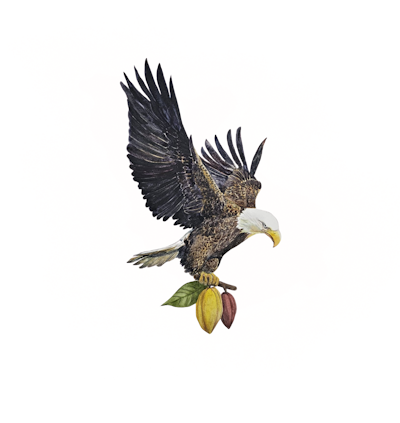
Nurturing the Sanctity of Native Flora: A Path to Harmonious Coexistence with Plants That Surround Us.

Recent foraging in my garden
In our fast-paced world where technology and modernity reign supreme, it’s easy to overlook the profound sacredness of the natural world around us. Yet, in the embrace of ancient traditions and indigenous wisdom, lies a timeless truth—the sacredness of plants and the importance of developing a deep, respectful relationship with them. In this article, we will explore why establishing a conscious connection with plants is vital, and how it can lead to spiritual, emotional, and physical benefits while safeguarding the delicate balance of our planet.
The Sacred Bond with Plants
Throughout human history, cultures worldwide have recognised the sacredness of plants and their role as allies on the path of healing, self-discovery, and spiritual growth. From the mystical Ayahuasca ceremonies in the Amazon rainforest to the centuries-old traditions of Native American herbal medicine, our ancestors revered plants as sentient beings, wise teachers, and sacred gifts from the Earth.

Developing Respectful Relationships
In a world that often treats nature as a commodity, rekindling a respectful relationship with plants becomes crucial. Taking the time to understand their properties, growth patterns, and unique qualities fosters a deeper connection. When we approach plants with reverence and gratitude, we honour the wisdom they share with us.
In our quest for exotic and far-flung botanical wonders, we sometimes forget the enchantment that lies within our own landscapes. The plants that grow nearby hold the keys to ancient wisdom, just waiting to be rediscovered. By forming a deep connection with our local flora, we can access a profound understanding of our place in the grand tapestry of nature.
Dosage: The Art of Balance
When working with sacred plants, the adage “more doesn’t mean better” holds true. Dosage is a critical aspect of plant medicine, be it herbal remedies or entheogens. Practitioners must approach dosage with mindfulness and intention, recognising that the plants’ potency lies in their ability to teach and heal when treated with respect and moderation.
Spiritual Benefits
The sacredness of plants goes beyond their physical properties. When approached with reverence and intention, they can be gateways to the spiritual realm. Entheogenic plants like Ayahuasca and Psilocybin mushrooms have been used in shamanic practices to facilitate profound spiritual experiences, offering insights, healing, and a profound sense of interconnectedness with all of creation.
Emotional Healing
Plants have a remarkable ability to heal emotional wounds and support inner growth. Herbal allies like Lavender and Chamomile can ease anxiety and promote relaxation, while entheogens like Peyote have been used in ceremonial settings to help individuals process and heal from past traumas. A conscious relationship with plants allows us to access their emotional healing potential.

Bringing me much-needed shade and peace, on one of the scouts’ camps, chestnut leaves.
Physical Well-being
Beyond their spiritual and emotional benefits, plants offer a vast array of medicinal properties. Herbal medicine, as practised by wise herbalists throughout history, addresses physical ailments and supports overall well-being. From immunity-boosting Echinacea to soothing Calendula for skin conditions, plants provide us with a wealth of natural remedies.

A family-run farm in Sri Lanka, from which I source my Blue Lotus flowers Embracing Sustainability
As we deepen our connection with plants, the importance of sustainability becomes evident. Wildcrafting and harvesting practices must be mindful and respectful of nature’s delicate balance. Choosing ethically sourced plants and supporting sustainable agriculture ensures that future generations can continue to benefit from the wisdom of these sacred beings.
Honouring the Ecosystem
Local plants play a vital role in their ecosystems, sustaining a delicate balance that supports countless other living beings. From the smallest insects to majestic wildlife, the preservation of native flora ensures the harmony of the entire ecosystem. As conscious stewards of the Earth, it is our responsibility to protect these precious habitats.
In the bustling rush of modern life, it’s easy to overlook the precious treasures bestowed upon us by the Earth herself. Explore the sacredness of plants that grow right at our doorstep and remember the importance of preserving them, avoiding the abuse of non-native plants like Palo Santo, White Sage, and precious resins like Myrrh and Frankincense.
Rosemary and its blooms in my back garden
Palo Santo: A Waning Wonder
Palo Santo, known for its uplifting aroma and sacred use in smudging rituals, is facing significant threats due to overharvesting. This beloved tree, found in the South American dry forests, has seen a sharp decline in its population. To preserve this sacred plant, we must seek sustainable sources and use alternatives like locally abundant herbs for smudging ceremonies.
White Sage: Cultivating Respect
White Sage, cherished by Indigenous communities for its cleansing properties, is also experiencing the consequences of over-harvesting. It is crucial to be mindful of our usage and seek alternatives when available. Rather than appropriating traditional practices, let us cultivate respect and appreciation for the cultural significance of White Sage.
Myrrh and Frankincense: Precious Gifts
The resins Myrrh and Frankincense, revered for their use in sacred rituals and spiritual practices, have a long history of cultural and medicinal significance. Over-harvesting these resins, primarily found in Africa and the Arabian Peninsula, can have detrimental effects on the local ecosystems and the communities that rely on these plants for livelihood. Seek ethically sourced resins and use them with utmost respect and gratitude.

Nettle getting ready to alchemise into nourishing nettle soup
Embracing Sustainable Alternatives
Let us explore sustainable alternatives that thrive in our region. There are abundant sacred herbs, like Lavender, Rosemary, Cedar, Hawthorn and Mugwort, that can be used for
smudging and other spiritual practices. Embrace these local gifts and let them weave their enchanting energies into your rituals.
Conclusion
In a world where disconnection from nature has become prevalent, the sacredness of plants serves as a guiding light, leading us back to our roots and reminding us of our interconnectedness with all living beings. By developing a conscious relationship with plants, we gain access to their spiritual, emotional, and physical benefits, while also becoming stewards of the Earth’s delicate ecosystems. Let us embrace the wisdom of our ancestors, rekindle the sacred bond with plants, and walk the path of healing, harmony, and reverence for all of creation.
Remember, every encounter with a plant is an opportunity to honour its sacredness, learn from its teachings, and coexist in harmony with nature’s divine plan.
In the magical realm of nature, every plant carries its unique sacredness, awaiting our discovery and appreciation. As we walk this path of harmony and preservation, let us be mindful of the impact of our actions on the environment and the communities who rely on these plants for their livelihood. By embracing the wisdom of local flora, we form a deep connection to the land, its people, and the rich tapestry of life.
Together, let us tread lightly, cherishing and preserving the gifts of nature so that generations to come may also revel in the sacredness of the plants that grow near us. May our hearts be filled with gratitude for the bountiful beauty of the Earth and may we become humble guardians of its treasures.
With love for all of creation,
Yours Extravaganja

My lemon thyme and my favourite sunflowers
Note: This article emphasizes the importance of treating plants with respect, using dosage mindfully, and understanding the sacredness of their properties. It highlights the spiritual, emotional, and physical benefits of working with plants and stresses the significance of sustainability to preserve these precious resources for future generations.
The information provided in this article is for educational purposes only and not intended as medical advice. Always consult with a qualified healthcare professional before using any plant-based remedies or supplements, especially if pregnant, nursing, or taking medications

